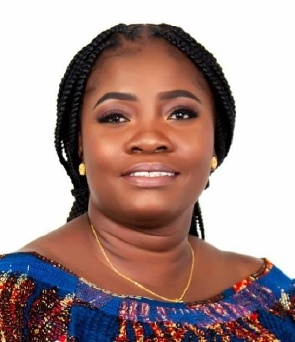By Enyonam Adzo APETORGBOR
Women in Ghana have historically faced significant barriers in accessing financial resources, limiting their economic potential and contributions to national development. President Mahama’s recent promise to establish a Women Development Bank is a strategic initiative aimed at addressing these disparities and empowering women entrepreneurs.
This move has the potential to transform the economic landscape for women, fostering greater inclusivity and equality. I congratulate all women in advance!
The importance of a Women Development Bank
One of the primary challenges women face in Ghana is limited access to finance. Traditional banks often have stringent requirements that many women, especially those in rural areas, cannot meet. A Women Development Bank, tailored to the unique needs of women, would provide accessible financial services, including loans, grants and savings products. This would enable women to start and grow their businesses, contributing to economic growth and poverty reduction.
Promoting economic independence
Financial independence is a crucial aspect of women’s empowerment. By providing women with the means to generate their own income, a Women Development Bank would promote economic self-sufficiency. This independence not only improves the quality of life for women and their families, but also enhances their bargaining power in both domestic and community settings.
Supporting women entrepreneurs
Women entrepreneurs often lack the necessary support and resources to thrive. A Women Development Bank could offer tailored financial products and services, as well as business development training and mentorship programmes. This support would help women entrepreneurs navigate challenges, innovate and scale their businesses, ultimately contributing to a more dynamic and diverse economy.
Reducing gender inequality
Establishing a Women Development Bank is a step toward reducing gender inequality in the financial sector. It would provide a dedicated platform to address the unique challenges women face and promote gender-sensitive policies and practices. By doing so, it would contribute to broader efforts to achieve gender equality in Ghana.
Calling for support from women’s groups and organisations
The realisation of President Mahama’s promise requires the concerted efforts of various stakeholders. Women’s groups and organisations, both national and international, have a pivotal role to play in supporting this initiative.
Advocacy and awareness
Women’s groups should actively advocate for the establishment of the Women Development Bank. Raising awareness about the potential benefits of this initiative can garner public support and put pressure on policy-makers to prioritise its implementation.
Collaboration and partnerships
National and international women’s organisations can collaborate to provide technical expertise, funding and other resources necessary for the successful establishment and operation of the bank. Partnerships with financial institutions, development agencies and government bodies can further strengthen these efforts.
Capacity-building
Women’s groups can engage in capacity-building activities to prepare women entrepreneurs to effectively utilise the services offered by the Women Development Bank. Training programmes on financial literacy, business management and entrepreneurship can equip women with the skills needed to succeed.
Monitoring and evaluation
Once established, women’s organisations can play a key role in monitoring and evaluating the performance of the Women Development Bank. Ensuring that it meets its objectives and effectively serves the needs of women will be crucial for its long-term success.
The promise of a Women Development Bank by President Mahama is a strategic and much-needed initiative for women’s empowerment and enterprise in Ghana. By addressing the financial barriers faced by women and promoting economic independence, this bank has the potential to transform the lives of countless women and contribute to national development.
It is imperative that women’s groups, both national and international, rally behind this initiative, advocating for its realisation and providing the necessary support. Together, we can look into the future with optimism and work toward a more inclusive and equitable society where women are fully empowered to achieve their economic potential.
The writer is a development finance expert & CEO, KIPC










